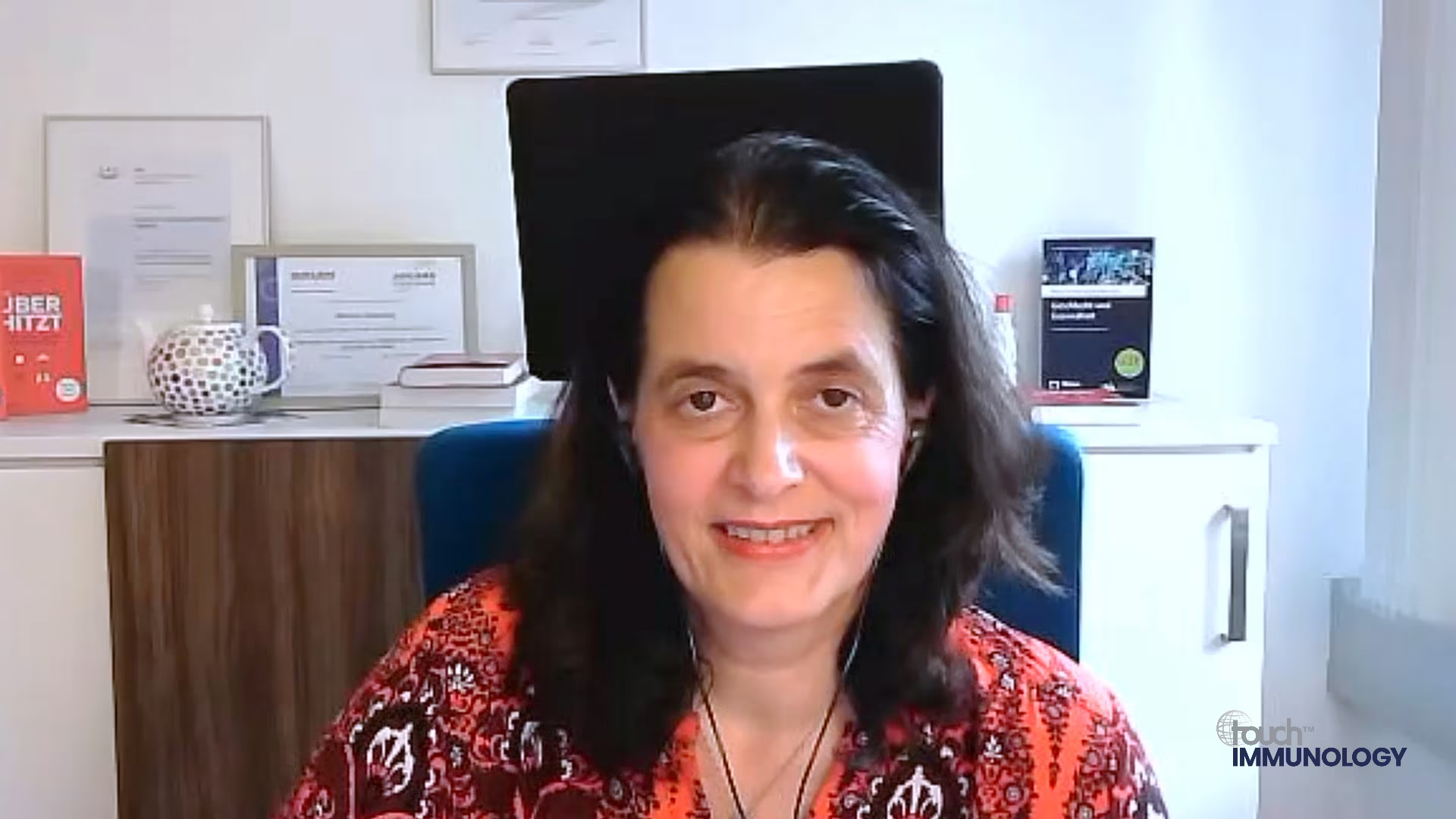BOREAS: phase 3 study of dupilumab in COPD: Klaus F. Rabe, ATS 2023
The phase 3 BOREAS study (NCT03930732) investigated the efficacy and safety of dupilumab for the treatment of chronic obstructive pulmonary disease with type 2 inflammation. It was a pleasure to talk with Prof. Klaus F. Rabe (University of Kiel, Germany) around the aims, design, inclusion criteria and findings from the phase 3 study and the impact these findings will have on the clinical development of dupilumab.
The abstract ‘Efficacy and Safety of Dupilumab in Chronic Obstructive Pulmonary Disease With Type 2 Inflammation.‘ was presented at ATS 2023, 19-24 May 2023.
Questions
- What were the aims, design and inclusion criteria of the phase 3 BOREAS trial? (0:38)
- What were the efficacy and safety findings of the study? (2:00)
- What will be the next steps in the clinical development of dupilumab? (3:59)
Disclosures: Klaus Rabe discloses consulting for, receiving grant/ research support from, serving on advisory boards for and receiving honoraria from AstraZeneca, Boehringer Ingelheim, Chiesi Pharmaceutical, Sanofi and Regeneron; and participating in speaker’s bureaus with AstraZeneca, Boehringer Ingelheim, Berlin Chemie, Chiesi Pharmaceutical, Sanofi and Regeneron.
Support: Interview and filming supported by Touch Medical Media Ltd. Interview conducted by Victoria Jones.
Filmed in coverage of the ATS Annual Meeting.
Click here for more content on COPD.
Transcript
What were the aims, design and inclusion criteria of the phase 3 BOREAS trial? (00:38)
The rationale behind BOREAS was the fact that recognizing that there is this type 2 inflammation present in a minority of COPD individuals, and given that we were not very successful in really developing new drugs for this disease. The theory was why not try to add this medication next to a standard triple therapy of patients with COPD, learning from the asthma field those people that do exacerbate, people that have an impairment of function, and to see whether this drug would give additional benefits to existing therapies of triple medication. And the endpoints were therefore exacerbations as something that you would like to prevent, which poses an enormous burden at cost, ideally lung function, because, from the asthma literature, we understood that even people who were on bronchodilators, they had further improvement of dysfunction, and ideally obviously, as a so-called patient-related outcome, we were interested in symptomatic benefit, so we were aiming with different endpoints sort of, you know, for a complete package, and we were anxious to see what would happen.
What were the efficacy and safety findings of the study? (02:00)
The study which was completed some months ago and was published four weeks ago, we are now in June 2023, was a trial with 1,000 individuals that were all on triple medication, almost 100%. They were 65 years of age. That is the general age of any patient with COPD in large clinical trials over the last 20 years. They had 40 pack-years, people that had smoked a lot and they had an impaired lung function with an absolute amount of around 1.4-1.5 litres. So clinically, a significant burden of disease, and they were under treatment exacerbated. When you treat them with their standard therapy, which was efficacious to be sure, and you add dupilumab to them, people improved with their exacerbation rates, they had 30% reduction in exacerbation rates compared to the placebo under effective treatment. They benefited with their lung function and notably rather rapidly within the first weeks, and they benefited symptomatically. In correlation to that, we obviously looked after for safety and there, there’s very little to report. For me, most surprising is the fact that we knew from the asthma world that people with elevated eosinophil count sometimes developed further eosinophilia when the people were treated with the drug by a mechanism that is being discussed and that is reasonably well known. But even that didn’t occur. So the treatment was well-received and well-tolerated over this one-year trial, with a broad and rather surprisingly significant benefit on the three areas and items they have tested.
What will be the next steps in the clinical development of dupilumab? (03:59)
These results are obviously encouraging and it’s worth noting that there is another second clinical trial awaited, to deliver data next year, 2024. This is called NOTUS, the study that was conducted is called BOREAS. The question will be sort of how will it get into the market to be available to patients. The second thing is I do believe that this promising data, given the medical need and given the paucity of novel interventions, will stimulate research and will stimulate other clinical trialists to say, “Listen, if that is possible, it’s obviously worthwhile to characterize an endotype individual with COPD to see whether a specific or individualized treatment with another antibody, with another combination, would actually render comparable effects”, so it will be a stimulating impulse, I guess, for the whole area. I think it gives hope to people like me that treat individuals and clearly to patients that they say “Listen, this field is moving”, and it will increase the recognition of the disease as being so prevalent, as being so deadly. I really hope that we can increase our otherwise rather limited armamentarium of drug treatments next to all of these non-pharmacologic interventions that we know to improve patient lives. And ultimately, and that’s what I think is really important to finally change mortality in this population, which globally still is a problem.
Subtitles and transcript are autogenerated.







